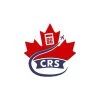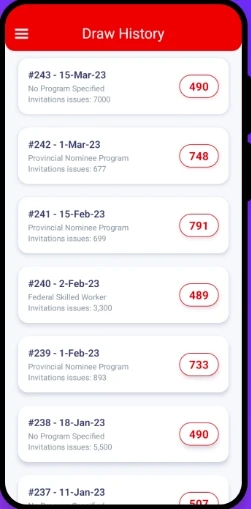Canada has become a popular destination for immigrants seeking a better quality of life, diverse opportunities, and a welcoming environment. The Express Entry system is one of the primary pathways for skilled workers to obtain permanent residency in Canada.
As a points-based system, candidates must meet the minimum Canada express entry points requirement to be eligible for consideration. In this blog, we will explore the minimum points required, factors that contribute to the Comprehensive Ranking System (CRS) score, and tips to enhance your chances of receiving an Invitation to Apply (ITA) for Canada PR.
The Comprehensive Ranking System (CRS)
The CRS is a point-based system used by Immigration, Refugees, and Citizenship Canada (IRCC) to rank candidates in the Express Entry pool. The CRS score is based on factors such as age, education, work experience, language proficiency, and adaptability. The maximum CRS score a candidate can achieve is 1,200 points. The higher the CRS score, the more likely a candidate is to receive an ITA.
Minimum CRS Score Required
There is no fixed minimum CRS score required to create an Express Entry profile. Candidates with a score of 0 can still submit their profile and be considered in the pool. However, it is crucial to note that the CRS score cutoff in the regular Express Entry draws determines who receives an ITA. Historically, the cutoff scores have ranged from the 400s to the 500s, but they can vary depending on the specific draw's factors, such as the number of candidates in the pool and Canada's immigration targets.
Factors Affecting CRS Score
Core Human Capital Factors: Age, level of education, official language proficiency (English or French), and Canadian work experience if applicable.
Spouse or Common-law Partner Factors: Education, language proficiency, and work experience of the spouse or common-law partner, if applicable.
Skill Transferability Factors: Points for combinations of education and language proficiency, as well as Canadian and foreign work experience.
Additional Points: Candidates may earn additional points for factors such as having a provincial nomination, a qualifying job offer from a Canadian employer, or Canadian education.
Tips to Improve Your CRS Score
Language Proficiency: One of the most effective ways to increase your CRS score is by improving your language proficiency. Taking language tests like IELTS or CELPIP and aiming for higher scores can significantly boost your points.
Education: Obtaining higher education credentials, such as a Master's or Ph.D., can earn you more CRS points.
Work Experience: Gaining additional work experience can contribute to your CRS score. Consider obtaining Canadian work experience through temporary work permits to increase your chances.
Provincial Nomination: If eligible, applying for a provincial nomination through Provincial Nominee Programs (PNPs) can add 600 points to your CRS score, virtually guaranteeing an ITA.
Siblings in Canada: Having a sibling who is a Canadian citizen or permanent resident can earn you additional CRS points.
Conclusion
While there is no fixed minimum Canada Express Entry points requirement, aiming for a competitive CRS score is crucial to increase your chances of receiving an ITA for Canada PR. Understanding the factors that contribute to your CRS score and strategically improving those areas can significantly enhance your profile. The Express Entry system remains one of the most efficient and transparent ways to achieve your dream of becoming a permanent resident in Canada. With the CRS Calculator App, you can make your Canadian dream a reality.



